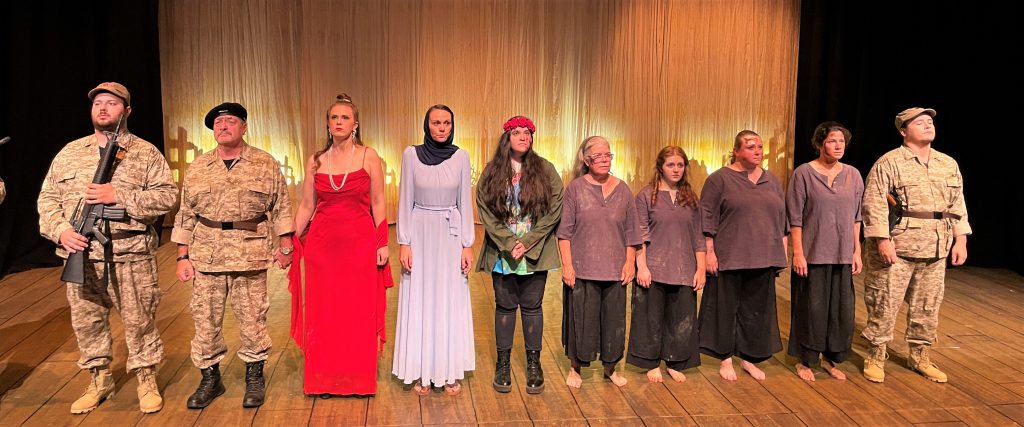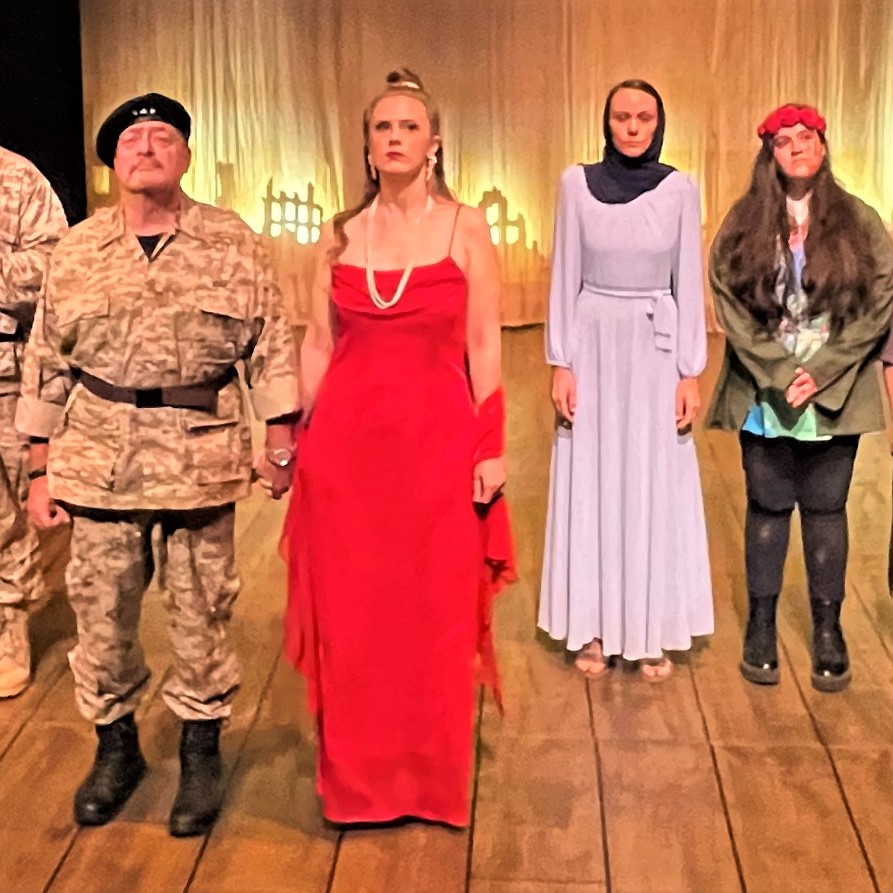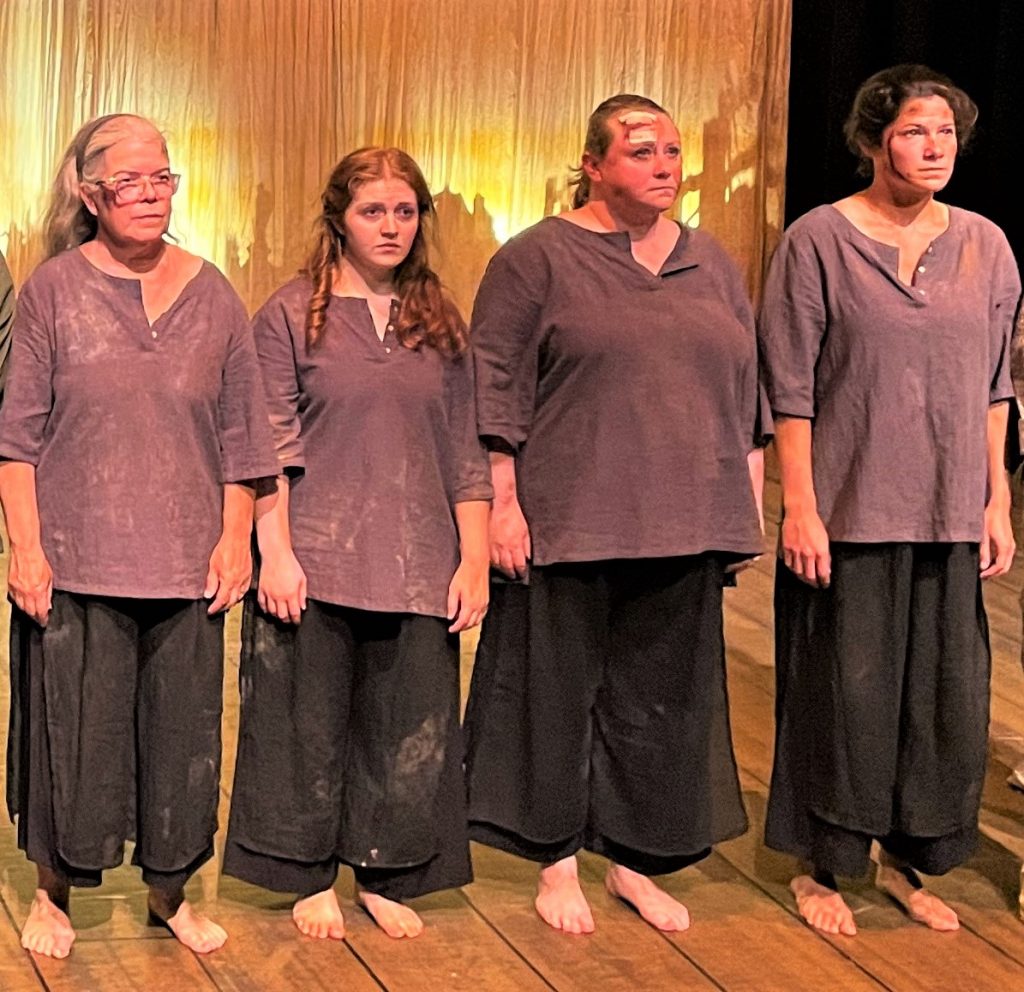
The Trojan Women (415 BC) by Euripides is a classic. Not because it belongs to the Greek Classical era, but because after nearly two-and-a-half centuries it stands as the greatest anti-war play ever written. The play needs little in the way of costumes, there is no scenery, no spectacle: only language which strips the heart bare.
Plutarch informs his readers of an anecdote about the play’s first performance. An Athenian general famous for his brutality attended the first performance, sitting high in the back of the theater. As a general he was famous for his indiscriminate killing of women and children when he captured a city or town; his nickname, worn with pride, was The Butcher. At the conclusion of the play, he stood up with tears running down his face. The following day he resigned his post. The notorious General decided to devote his life to promote peace. He did not live to see Athens fall to Sparta, much less Rome.
This legendary play is about the fall of Troy and the dire fate of women in the hands of whimsical Greek conquerors. The women, who are the chorus, await their fate of abasing slavery and deportation. Hecuba is informed that her new-born grandson, which she holds in her arms, will be tossed from the high walls of Troy as a victory trophy, thus ending the family lineage of King Priam before she becomes a household slave. The youngest of these women will become a slave concubine.

There is a conversation-like trial of Helen, played with arresting dignity and rhetorical eloquence, by Geneva Turner, who was the so-called source of the war. (Everything back then was a woman’s fault—part of the deep satire in the play.) Menelaos, played by David Dancygoer, was a laser-beam of brutality. Josie Grant as Hecuba was especially heart-breaking when she hears that she will be a slave of wily Odysseus. Staff Sergeant Joshuah Patriarco convincingly walked the high wire of being loyal (yes, he had emotions!) while disapproving of what his superiors compelled him do. Molly Fiebel as Cassandra was appropriately frustrated as no one paid attention to the only true prophetess of truth. Andromache by Alexandra Petrova was poignantly severe.
But the beating heart of the performance, the pulse of the play was the chorus: Ronnie Joseph, Vera Perry, Emily, DePew, and Lauren Silverman. The play rests on their shoulders: they delivered powerful unity in their songs and laments as well as their individual stories. No one wants to hear these laments, yet these laments are the hypnotic nerve of the play. I was so hypnotized by the performance that I forgot to snap pics during the performance, something that has never happened to me before.

At editorial and directorial helm was producer Lou Trapani who tailored the translation of scholar Richard Lattimore into a shocking, dense, mesmeric web that left the audience nailed to their seats—one wanted to squirm but dare not because one was transfixed.
This is the kind of play most people are reluctant to attend, yet it remains a play that most people should attend. The benefit of attending is that you will be reborn in conscience, knowing that you really do have a working conscience free of the numerous atrocities that plague life. When you leave the theater, you will know that you have made a pilgrimage to the source, that special spring of life and death. You will have a better notion of what freedom is.
We like to think that things change and that humans can change for the better, especially in theater or in movies. Yesterday, the Russian Ambassador to Ukraine told President Zelensky that Russia does not care about how many civilians will die in the current war. The past is ever present in this production. This unforgettable prodction runs through August 28.For more information about dates and tickets, click here.
